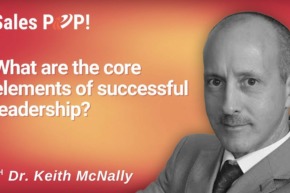In a recent episode hosted John Golden engaged in a thought-provoking discussion with Walter Block, a prominent economist from Loyola University New Orleans. The conversation delved into the core principles of the Austrian School of Economics, contrasting it with neoclassical economics. Walter Block, known for his extensive writings including “Defending the Indefensible,” provided a comprehensive overview of the Austrian perspective, emphasizing human action, deductive reasoning, and the critical role of entrepreneurship. This blog post will break down the key discussion points from the episode, offering actionable insights and expert advice for those interested in understanding the nuances of economic theory.
Introduction to the Austrian School of Economics
What is the Austrian School of Economics?
Walter Block begins by clarifying that the Austrian School is not about the economy of Austria but is named after the Austrian economists who founded it, such as Carl Menger, Ludwig von Mises, and Friedrich Hayek. He likens the Austrian School to the Chicago School of Economics, which is similarly named after its founders rather than the economic practices of Chicago itself.
Key Principles
- Human Action (Praxeology): The study of human action is central to Austrian economics. It posits that individuals act purposefully to achieve their desired ends, and this action is driven by the desire to improve one’s situation.
- Deductive Reasoning: Unlike neoclassical economics, which relies heavily on empirical data and mathematical modeling, the Austrian School emphasizes logical deduction from basic principles.
- Entrepreneurship: Entrepreneurs are seen as the driving force behind economic progress, creating markets and responding to consumer needs.
Differences Between Austrian and Neoclassical Economics
Empirical vs. Deductive Approaches
Block highlights the primary distinction between Austrian economics and mainstream neoclassical economics. Neoclassical economics relies heavily on empirical data, mathematical modeling, and statistical analysis. In contrast, the Austrian School views economics as a logical system rather than an empirical science. This leads to different interpretations of economic phenomena.
Critique of Empirical Testing
Block critiques the reliance on empirical testing in neoclassical economics, arguing that many economic theories cannot be tested in the same way as scientific hypotheses. He shares his experience with econometric analysis during his PhD dissertation on rent control, emphasizing that while data can illustrate certain economic principles, the underlying truths of those principles remain logically deduced rather than empirically proven.
The Role of Human Action
Praxeology Explained
Block introduces the concept of praxeology, the study of human action, central to Austrian economics. He explains that human action is driven by the desire to improve one’s situation, leading to mutually beneficial voluntary exchanges. For example, individuals only engage in trade when they perceive a benefit, a fundamental axiom of Austrian thought.
Real-World Applications
- Minimum Wage Laws: Block argues that minimum wage laws can lead to unemployment, as they interfere with the voluntary exchanges between employers and employees.
- Rent Control: He uses rent control as an example to illustrate how government intervention can lead to unintended consequences, such as housing shortages.
The Importance of Entrepreneurship
Entrepreneurship as a Driving Force
A significant aspect of the Austrian perspective is the emphasis on entrepreneurship. Block argues that entrepreneurs are essential for creating markets and driving economic progress. He contrasts this with neoclassical economics, which often overlooks the role of entrepreneurship in favor of equilibrium analysis.
Israel Kirzner’s Contributions
Block cites Israel Kirzner’s work on competition and entrepreneurship, asserting that understanding the dynamic nature of markets is crucial for grasping economic realities. Entrepreneurs identify and exploit opportunities, driving innovation and economic growth.
Market Dynamics and Government Intervention
Market Failure vs. Market Process
Block discusses the concept of market failure, often cited in neoclassical economics to justify government intervention. He argues that what neoclassical economists label as market failures are often the natural outcomes of a dynamic market process. The market is always in flux, and interventions can lead to unintended consequences that disrupt the natural order of economic interactions.
Examples of Government Intervention
- Licensing Requirements: Block provides examples of how licensing requirements can stifle innovation and competition, creating new business entry barriers.
- Regulations: He argues that excessive regulations can hinder entrepreneurial activities and economic growth.
The Role of Money and Central Banking
Money as a Facilitator of Trade
The conversation shifts to the role of money in the economy. Block explains that money facilitates trade and that the Austrian School advocates for a monetary system that emerges from market choices rather than being dictated by central banks.
Critique of Central Banking
Block critiques the Federal Reserve and its impact on the economy, arguing that central planning of money supply and interest rates leads to distortions and inefficiencies. He advocates for a free-market approach to money, where the value of money is determined by market forces rather than government intervention.
The Future of Entrepreneurship
Technological Advancements
Despite his critiques of government intervention, Block acknowledges the potential for a vibrant entrepreneurial landscape. Technological advancements and global connectivity are lowering barriers to entry for new businesses, creating opportunities for innovation and economic growth.
Persistent Challenges
However, Block remains cautious about the persistent influence of regulations that can impede entrepreneurial efforts. He emphasizes the need for a regulatory environment that supports rather than hinders entrepreneurship.
Conclusion
In conclusion, Walter Block emphasizes the importance of understanding the Austrian School of Economics as a framework for analyzing human action, market dynamics, and the role of entrepreneurship. He advocates for a more nuanced view of economics that recognizes the limitations of empirical testing and the significance of deductive reasoning. The conversation highlights the ongoing relevance of Austrian economics in understanding contemporary economic challenges and the importance of fostering an environment conducive to entrepreneurship.
Key Takeaways
- Human Action: Understanding human action is crucial for analyzing economic phenomena.
- Deductive Reasoning: Economics should be viewed as a logical system rather than an empirical science.
- Entrepreneurship: Entrepreneurs play a vital role in driving economic progress and innovation.
- Market Dynamics: Government interventions can lead to unintended consequences, disrupting the natural order of economic interactions.
- Monetary Policy: A free-market approach to money is preferable to central planning.
Our Host
John is the Amazon bestselling author of Winning the Battle for Sales: Lessons on Closing Every Deal from the World’s Greatest Military Victories and Social Upheaval: How to Win at Social Selling. A globally acknowledged Sales & Marketing thought leader, speaker, and strategist, he has conducted over 1500 video interviews of thought leaders for Sales POP! online sales magazine & YouTube Channel and for audio podcast channels where Sales POP! is rated in the top 2% of most popular shows out of 3,320,580 podcasts globally, ranked by Listen Score. He is CSMO at Pipeliner CRM. In his spare time, John is an avid Martial Artist.








Comments